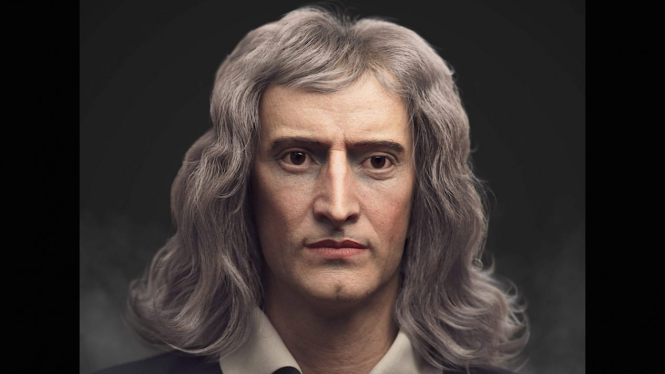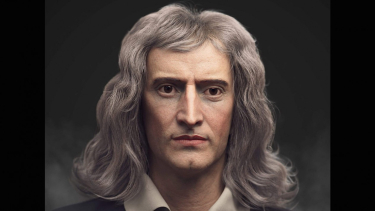A Brief Life Story of Isaac Newton: Has Neurological Disorders
- Lukas Kutschera
VIVA – Isaac Newton, in full, Sir Isaac Newton was born on December 25, 1642, in Woolsthorpe, Lincolnshire, England. He was a physicist and mathematician as well as a figure of the 17th-century Scientific Revolution.
In the field of optics, he succeeded in discovering the composition of white light which integrated the phenomenon of color into the science of light to become the basis for modern physical optics. While in mechanics, his three laws of motion are the basic principles of modern physics that resulted in the formulation of the law of universal gravitation.
After that, in mathematics, he was the original inventor of infinitesimal calculus. Philosophiae Naturalis Principia Mathematica (Mathematical Principles of Natural Philosophy, 1687) is one of the most important single works in the history of modern science.
Previously, he was not expected to survive his first day of life as he was born prematurely. Besides being abandoned by his father, Ayscough also later remarried Barnabas Smith, leaving young Newton with his grandmother and moving to a neighboring village.
Buku Philosophiae Naturalis Principia Mathematica milik Isaac Newton.
- U-Report
Isaac was effectively separated from his mother in 1653, and his prominent psychotic tendencies were ascribed to this traumatic event, that he hated his stepfather. When he examined the state of his psyche in 1662 and briefly cataloged his sins, he recalled having threatened his father and mother to burn them and his home.
Insecurity made him very anxious when his work was published and irrational violence accompanied Isaac Newton throughout his life and can plausibly be traced to his early years.
After his mother was widowed for the second time, she decided that her eldest son should manage her now sizable estate. This was a disaster, however, both for the estate and for Isaac Newton.
Like many prominent scientists of the era, he left behind anecdotes in Grantham about his mechanical abilities and his skill in making models of machines, such as clocks and windmills.
In June 1661, he was accepted as a student at Trinity University, Cambridge. When Newton arrived at Cambridge in 1661, the movement now known as the Scientific Revolution was well-advanced and many of the foundational works of modern science had emerged.
Astronomers from Nicolaus Copernicus to Johannes Kepler had elaborated the heliocentric system of the universe. Led by Rene Descartes, philosophers began to formulate a new conception of nature as a complex and impersonal machine, as quoted from the Britannica site, on Tuesday, January 3, 2023.
Ilustrasi Isaac Newton.
- U-Report
Some of the time during his undergraduate career, Newton came across the work of the French natural philosopher Descartes and other mechanical philosophers, who in contrast to Aristotle, viewed physical reality as consisting entirely of moving particles of matter and argued that all natural phenomena resulted from their mechanical interactions.
A new set of notes he titled 'Quaestiones Quaedam Philosophicae' (Certain Philosophical Questions), started around 1664.
The Quaestiones reveal that Newton had discovered a new conception of nature that provided the framework of Scientific Revolution. He thoroughly mastered the works of Descartes and also discovered the French philosopher.
Newton had also begun his mathematical studies. He started with Descartes, from La Geometrie branching out into other modern analytical literature with the application of algebraic techniques to problems of geometry. He also later supported classical geometry.
In less than a year, Newton had mastered the literature and followed his line of analysis, and then began to move into new territory. Then, he discovered the binomial theorem and developed calculus, a more powerful form of analysis using infinitesimal considerations in finding the slope of a curve and the area under a curve.
When Newton's mother fell seriously ill with a malignant fever in 1689, believed to be typhoid fever, he treated her with great care and skill. But then died at the age of 56.
Meanwhile, Isaac Newton had irregular working hours, his continuous work on The Principia, and his restlessness while searching for a new position led him to have a nervous breakdown in 1693. After five nights of sleeping 'not a wink', he seemed to lose control of all reality and was convinced that his close friends were conspiring against him.
Isaac Newton had two nervous breakdowns that were also attributed to metal poisoning, specifically from mercury and also from lead, which he often used in his alchemical experiments. Following his neurological disorder in 1693, the recovered as long as 18 months, and he retired from research.























